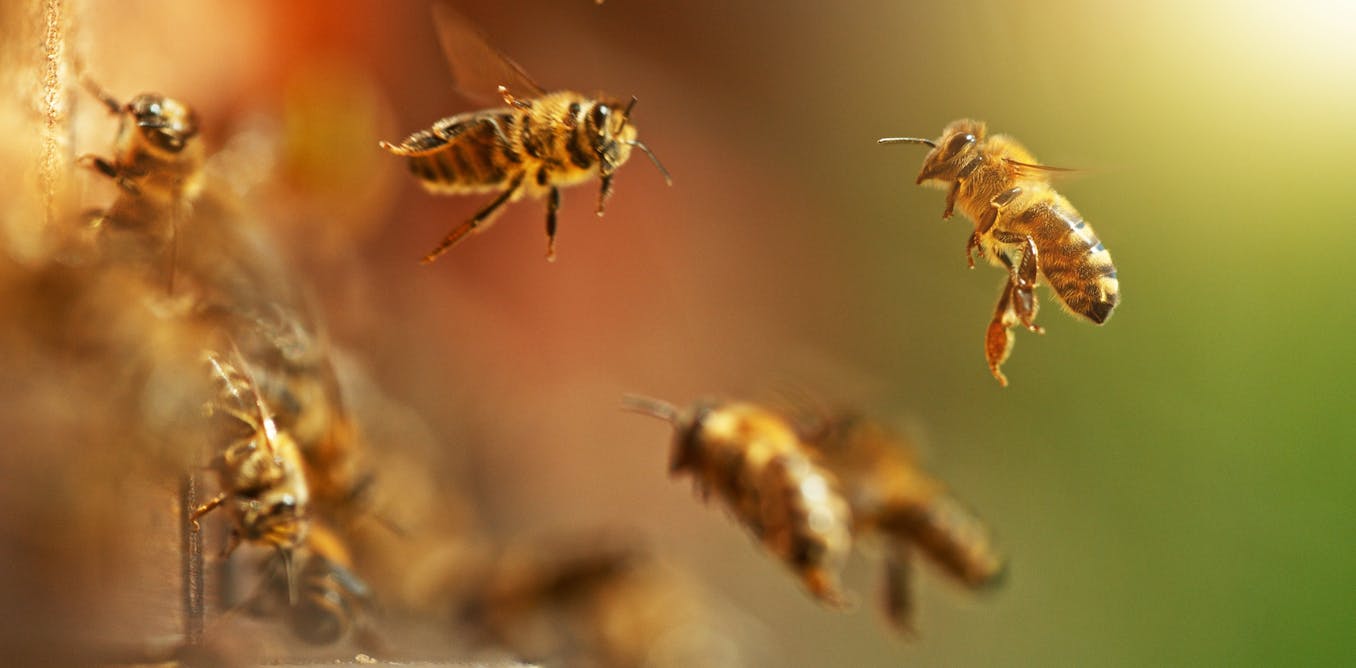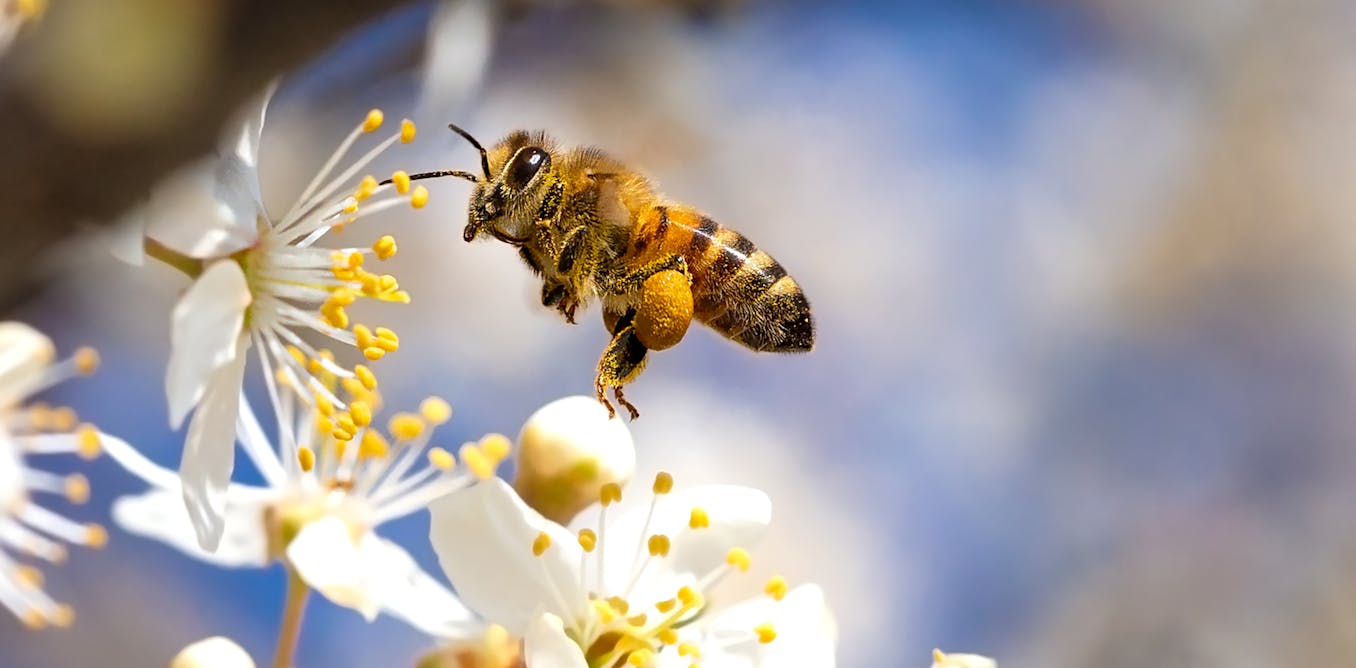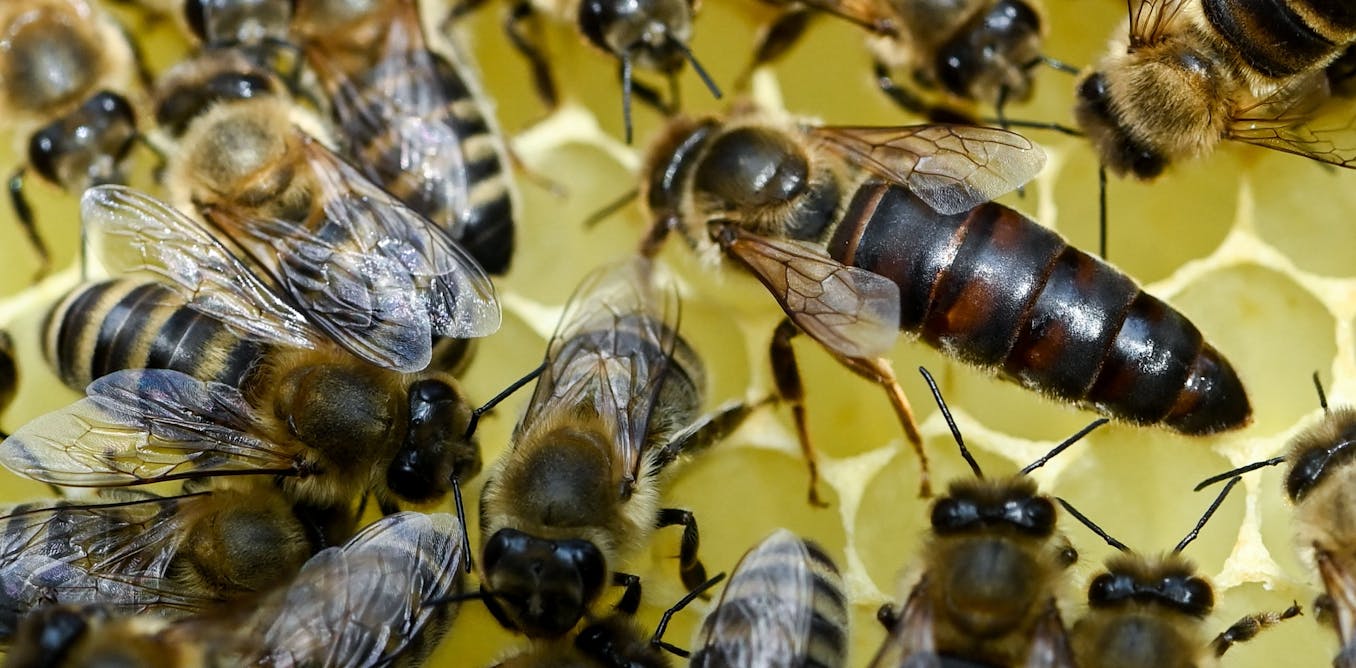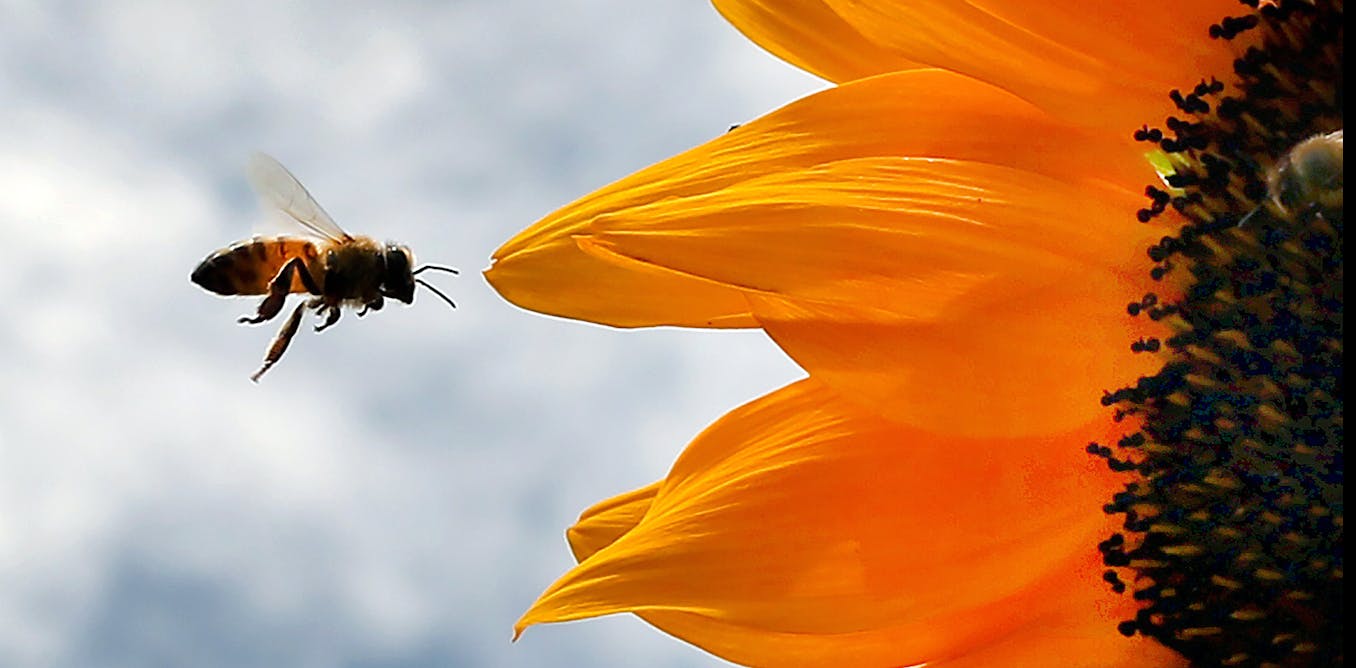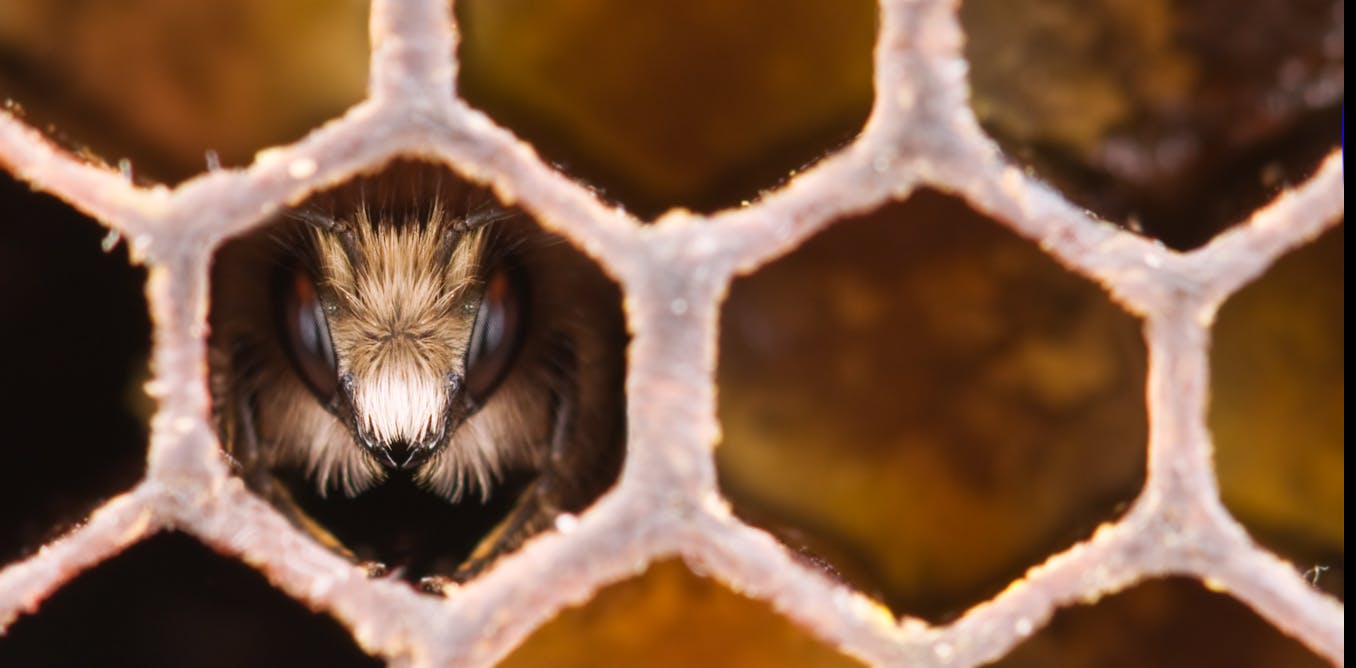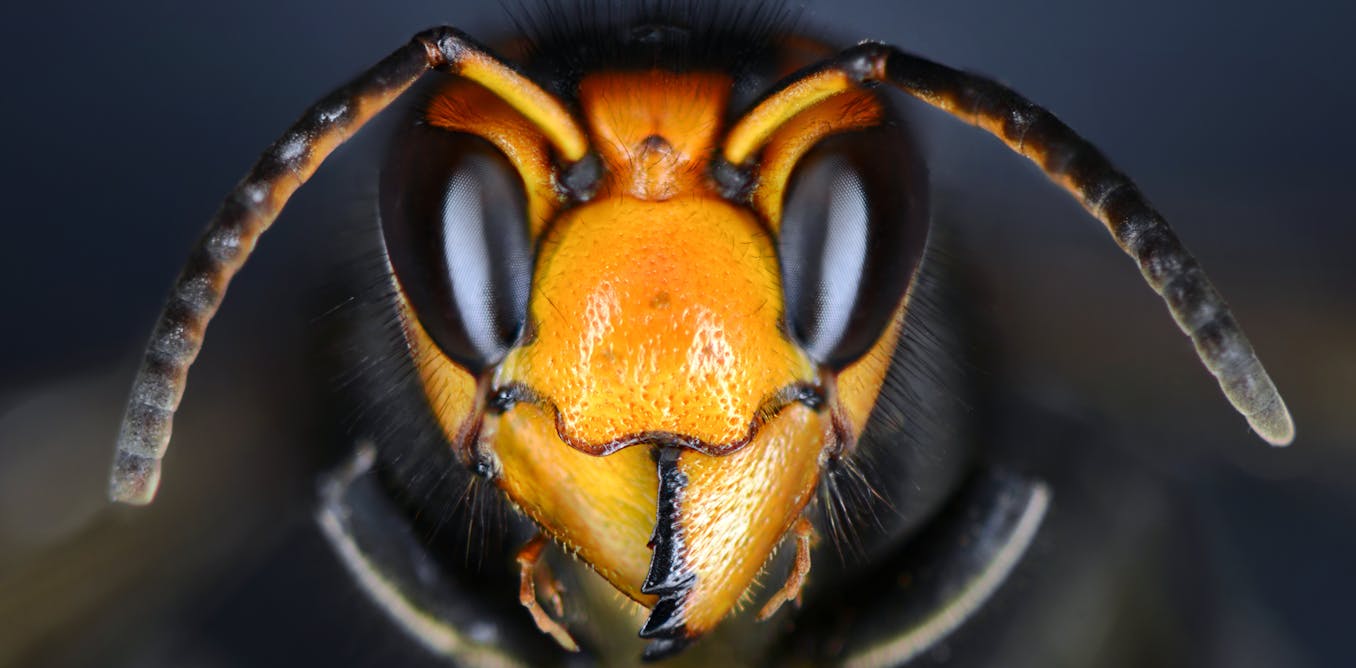From furry friends to fish, turning up the heat helps animals fight germs − how Mother Nature’s cure offers humans a lesson on fever
Fever isn’t necessarily a bad thing − it’s actually a useful response to infections.
May 23, 2025 • ~7 min
It’s OK to mow in May − the best way to help pollinators is by adding native plants
NoMowMay is a catchy concept, but it doesn’t provide the food that native North American pollinators need or lasting support for them.
May 15, 2024 • ~8 min
Why do bees have queens? 2 biologists explain this insect’s social structure – and why some bees don’t have a queen at all
A queen’s main job in the hive is to lay eggs and pass genes on to offspring. But many bee species do just fine without queens or big colonies.
March 4, 2024 • ~7 min
'Inert' ingredients in pesticides may be more toxic to bees than scientists thought
Inert ingredients are added for purposes other than killing pests and are not required under federal law to be tested for safety or identified on pesticide labels.
Dec. 5, 2023 • ~10 min
Asian hornets make UK their latest target – here’s why they’re such a threat to European bees
Invasive Asian hornets are a top predator of bees in the UK – and sightings are starting to soar.
Sept. 13, 2023 • ~8 min
Unlocking secrets of the honeybee dance language – bees learn and culturally transmit their communication skills
Honeybees possess one of the most complex examples of nonhuman communication. New research suggests that it is learned and culturally passed down from older to younger bees.
March 9, 2023 • ~8 min
/
3


